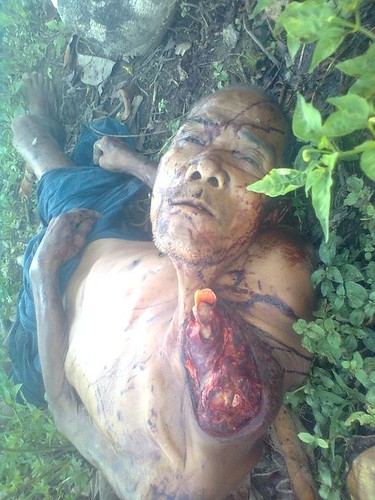Shrinking Teesta wreaks havoc on life in North
Withdrawal of upstream water by India drastically reduces flow in last 25 years severely affecting people in the region

Massive shoals are seen in the middle of the Teesta at Kaunia upazila in Rangpur as the river's downstream is shrinking fast. A Google Earth image, inset, shows how water of the river is being diverted through a canal from Gazoldoba barrage in the Indian state of Paschimbanga.
The withdrawal of Teesta waters by India continues to play havoc with the lives of the people in Bangladesh's northern region.
During the dry season, the flow of water in the river's downstream dwindles to 1,000 cusecs from around 5,000 cusecs (cubic feet per second), say sources at the Water Development Board's hydrology department.
It has been like this for the last 25 years for Gazoldoba barrage and some other dams built by India in the upper basin.
Though a signatory to the 1997 UN Watercourse Convention, which stipulates a "no-harm principle" in the use and conservation of trans-boundary rivers, India takes up most of the Teesta waters during the lean period, spelling disaster for the people in the land downstream.
"The Teesta has been shrinking fast for the last 10 years. Before 2000, we didn't dare to swim the river. Now we cross it by walking," said Taher Mollah of Char Gobordhon in Aditmari upazila of Lalmonirhat district.
Water board officials said the volume of water in the Teesta drops steeply in December-March because India holds back almost all water in that period.
The flow in February used to be 4,000 cusecs at the minimum before India built Gazoldoba barrage in 1985.
Recently, The Daily Star correspondents have visited several villages along the river and talked to locals there to know how their lives are being affected by the retention of water in the upstream.
Fishermen, farmers, boatmen and small traders said many of them have been forced to change livelihood, as the river stays dry for at least six months a year.
Abdul Khaleque, 60, of Panjor Bhanga village in Kawnia upazila under Rangpur district is a fisherman. He said he can catch hardly 10 percent of the fish he used to catch 20 years ago.
Porimol, 65, of Char Vuthnath in the same upazila said his income from fishing started to decrease 15 years back, and things got so bad that he had to sell his boat 10 years ago. Now he uses a hand-net to catch fish, but what he earns that way is not enough to feed his family.
Life is even harder for the boatmen. Nazir of Char Vuthnath said he sits idle from September to March as the river runs dry during that period.
Latif, 50, a bamboo trader at Dushmara Char under Kownia upazila, said he used to carry hundreds of bamboo poles to Dhaka by the river all year round. "But the water flow now is low for nine months a year, leaving barely three months for us to do trade," he added.
Mohiuddin of Kalmati in Lalmonirhat said that farmers like him were once used to bumper years for rice. "But those days are long gone. Harvests have been very poor particularly in the last 10 years."
Around 30,000 acres of char (land emerged from river) on the Teesta lies unused for years as farmers cannot grow rice and other crops there for lack of water in the river, said sources at the Department of Agriculture Extension in Lalmonirhat.
The water table has been going down by around two feet a year in the northern region due to excessive use of ground water for irrigation.
Many Boro farmers are switching to tobacco cultivation since they cannot get the water needed to grow Boro rice in February and March. This trend is adversely affecting the country's food production.
Tobacco cultivation, which needs less water but poses serious hazard to human health and ecology, has almost doubled in the northern districts in the last couple of years.
The insufficient flow of water has also rendered useless the Teesta barrage, which Bangladesh built at Dalia point in Nilphamari for Tk 1,500 crore in 1990.
Originally, the barrage project planned to irrigate around 300,000 hectares of land in Rangpur, Nilphamari, Gaibandha, Dinajpur, Bogra and Joypurhat districts during the dry season.
Under phase-I, the barrage was supposed to irrigate some 50,000 hectares of land in Rangpur and Nilphamari, said officials at the Water Development Board. But records show it could irrigate hardly 15,000 hectares of land on average.
Phase-II, which was aimed at irrigating areas in Dinajpur, Bogra, Gaibandha and Joypurhat, could not be implemented for lack of water in the river.
Sources close to the project said at least 40,000 cusecs of water is needed to irrigate the entire cultivable land in winter. Without this, the objectives of the project are bound to fail.
Sufferings of the people in the northern districts continue in the rainy season as well when too much water released from the upstream causes floods.
India started building Gazoldoba barrage some 70 kilometres upstream from Dalia point soon after Bangladesh began constructing the Teesta barrage in 1983. The Indian barrage opened after two years, while Bangladesh's took seven years to be in operation.
Originating from the Indian portion of the Himalayas, the Teesta enters Bangladesh at Kaliganj village under Satnai union of Dimla upazila in Nilphamari district. It courses 45 kilometres through Nilphamari, Rangpur, Lalmonirhat and Gaibandha districts before meeting the Brahmaputra in Kurigram.
The river has lately come into public discussion, as there were high expectations that an agreement would be reached on its water sharing during Indian Prime Minister Manmohan Singh's visit to Dhaka on September 6-7.
However, the deal fell through at the eleventh hour, to utter frustration of millions living by the Teesta.
__._,_.___
























